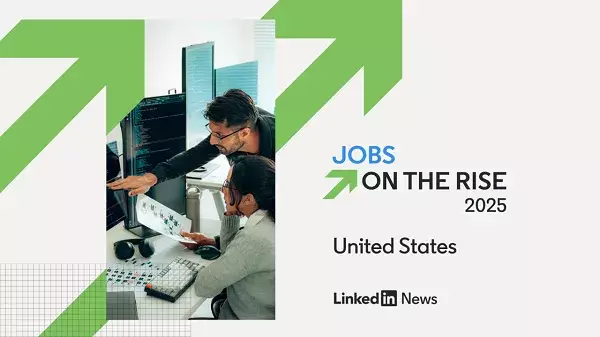As we approach 2025, the landscape of job opportunities is undergoing a significant transformation. LinkedIn’s “Jobs on the Rise” report serves as a crucial guide for job seekers and professionals contemplating career changes. This year, the report highlights a burgeoning demand for roles related to artificial intelligence (AI), such as AI Engineer and AI Consultant. These positions are characterized by an increasing number of job listings, reflecting a critical shift in how businesses are adopting and integrating AI technologies.
The rise of AI in the workforce is not just a passing trend; it is indicative of a profound evolution in various sectors. Companies are recognizing the power of AI to enhance efficiency, optimize processes, and drive innovation. However, it is essential to approach this technology with an understanding of its limitations. While AI can automate repetitive tasks and analyze vast data sets, the human touch is irreplaceable in decision-making, creative endeavors, and interpersonal interactions. Aspiring job seekers should emphasize their understanding of AI’s capabilities while also honing skills that complement its functions.
Non-AI Roles Gaining Traction
Ironically, as AI continues to expand its reach, so does the demand for roles that machines cannot replicate. Professions such as physical therapy and travel advisory are on the rise because their core functions rely heavily on human expertise and empathy. These roles capitalize on personal interaction, emotional intelligence, and the ability to navigate complex social situations—areas where AI falls short.
This indicates a fascinating trend in the job market: as technology evolves, the value of uniquely human skills is becoming more pronounced. Professionals in sectors where personal touch and specialized knowledge are paramount could find themselves in high demand. For instance, physical therapists require hands-on interaction and tailored treatment plans, making their roles vital in healthcare despite advancements in medical technology. Similarly, travel advisors provide insights and recommendations based on personal experience and cultural understanding, aspects AI cannot easily replicate.
Catering to Future Job Seekers
For young professionals and those entering the workforce, navigating this evolving job landscape can be daunting. LinkedIn’s report offers a wealth of information by outlining emerging job roles across various industries. By analyzing these trends, job seekers can position themselves strategically for the future. It’s advisable to pursue skill development that aligns with these emerging roles while also emphasizing emotional and analytical strengths that machines cannot replace.
Leveraging platforms like LinkedIn can also provide insights into industry demands and skill gaps. Networking with professionals in desired fields can open doors and enhance understanding of necessary qualifications.
As we look towards 2025, the job market is undeniably shifting. While AI roles take precedence, there remains a crucial need for human-centric professions. Success in this new environment will require adaptability, a commitment to continuous learning, and a focus on nurturing those irreplaceable human qualities that will always be in demand.


Leave a Reply